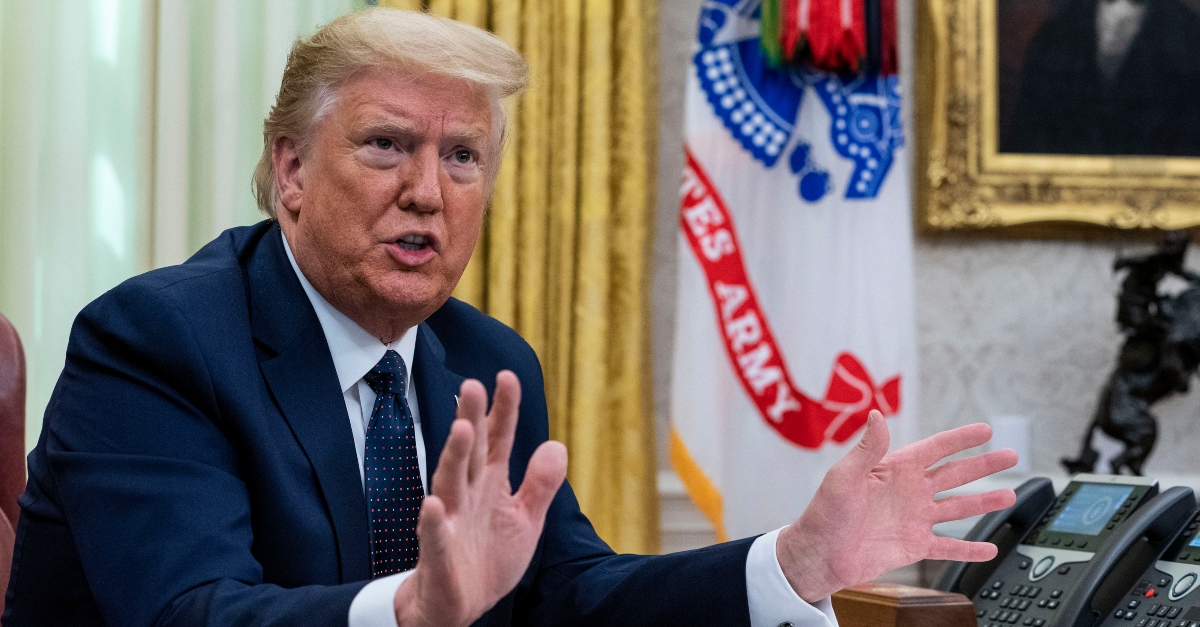
Doling out yet another legal loss to President Donald Trump’s re-election campaign, the Pennsylvania Supreme Court ruled 5-2 on Tuesday that an election observer in Philadelphia was not entitled to stand within a particular distance from employees who were processing mail-in ballots, overturning a lower court’s ruling on the matter.
In a 20-page opinion, Justice Debra Todd, a Democrat, reasoned that under Pennsylvania’s Election Code, Philadelphia’s Board of Elections was authorized to establish distance rules for designated observers based on its perceived need to protect workers from contracting the novel coronavirus, to prevent possible physical assaults against them, and to ensure the security of voters’ private information.
The decision hinged on the court’s interpretation of a pair of statutes governing the procedure for the pre-canvassing and canvassing of mail-in ballots which state that authorized observers are to be “permitted to remain in the room” in which the process occurs. The court reasoned that where the state legislature made the “deliberate choice” to select broad language as opposed to a particular proximity parameters, the court should not step in to assign such a designated minimum distance in its stead.
“While this language contemplates an opportunity to broadly observe the mechanics of the canvassing process, we note that these provisions do not set a minimum distance between authorized representatives and canvassing activities occurring while they ‘remain in the room,” Judge Todd wrote. “The General Assembly, had it so desired, could have easily established such parameters; however, it did not. It would be improper for this Court to judicially rewrite the statute by imposing distance requirements where the legislature has, in the exercise of its policy judgment, seen fit not to do so.”
Tuesday’s ruling also emphasized that the campaign’s observer, attorney Jeremy Mercer, was fully able to observe the entirety of the pre-canvassing and canvassing process in accordance with state law. According to Judge Todd, Mercer’s contention that he was not close enough to view the actual declarations on the ballot envelopes or to examine individual ballots for improprieties would only be relevant if he were challenging individual ballots, but such challenges are barred by the state’s Election Code.
“In sum, we conclude the Board did not act contrary to law in fashioning its regulations governing the positioning of candidate representatives during the pre-canvassing and canvassing process, as the Election Code does not specify minimum distance parameters for the location of such representatives,” the order stated. “Critically, we find the Board’s regulations as applied herein were reasonable in that they allowed candidate representatives to observe the Board conducting its activities as prescribed under the Election Code. Accordingly, we determine the Commonwealth Court’s order was erroneous. Thus, we vacate that order, and reinstate the trial court’s order.”
The initial Nov. 5 order from Commonwealth Judge Christine Fizzano Cannon (R) required “all candidates, watchers, or candidate representatives” be permitted to “observe all aspects of the canvassing process within 6 feet, while adhering to all COVID-19 protocols, including, wearing masks and maintaining social distancing.” Out of more than one dozen suits filed, this was one of only a couple non-election outcome altering Trump campaign legal victories since Election Day.
University of Texas law professor Steve Vladeck noted that the decision significantly damaged the chances that the U.S. Supreme Court would be willing to take up the case.
“This is a significant decision from the Pennsylvania Supreme Court, not only on the merits, but also because it’s based on what the Pennsylvania legislature *itself* provided — which, together with the low stakes, should make it hard for Trump to convince the U.S. Supreme Court to intervene,” he wrote.
[image via Doug Mills-Pool/Getty Images]
Have a tip we should know? [email protected]